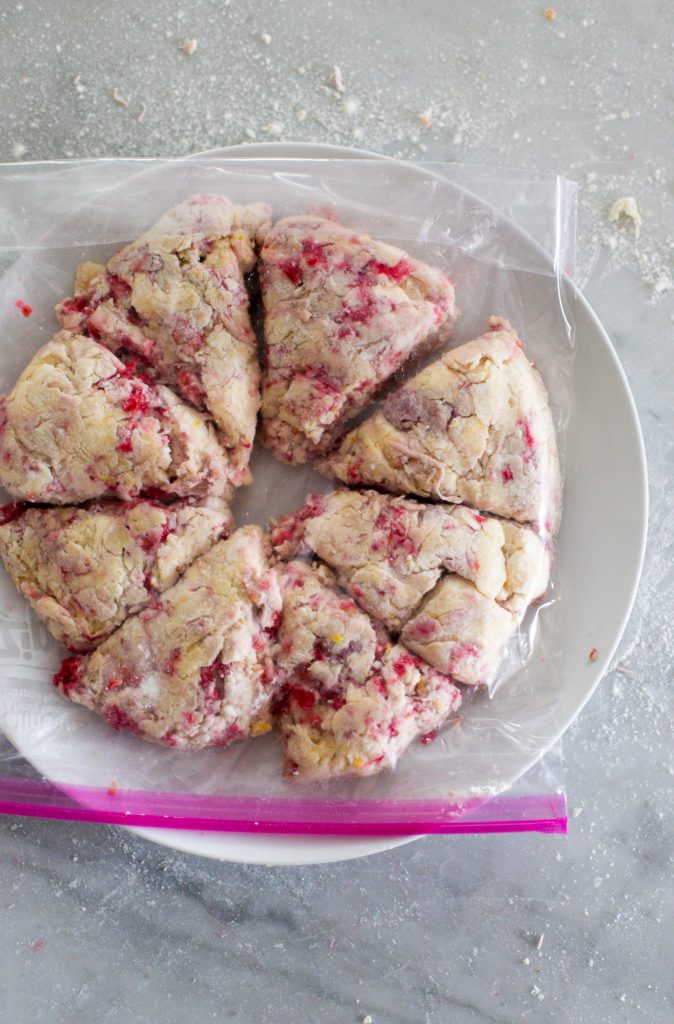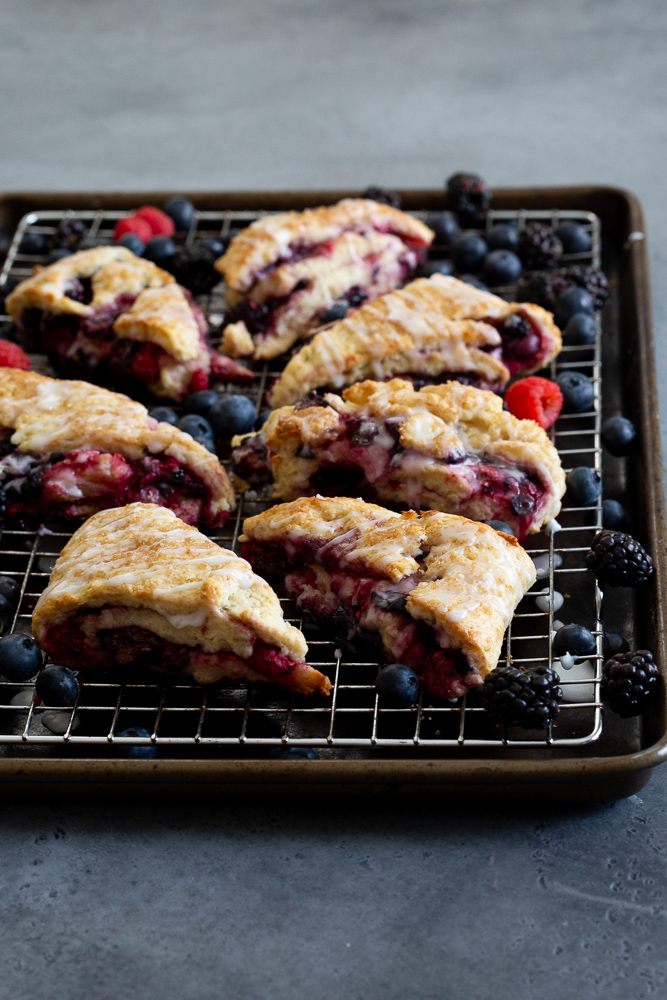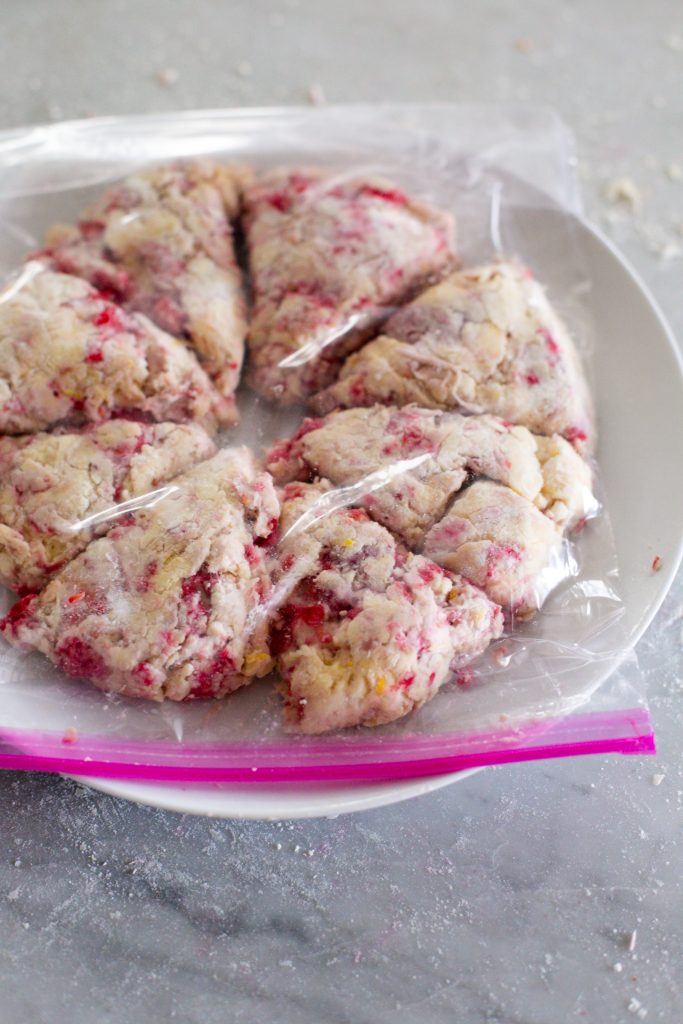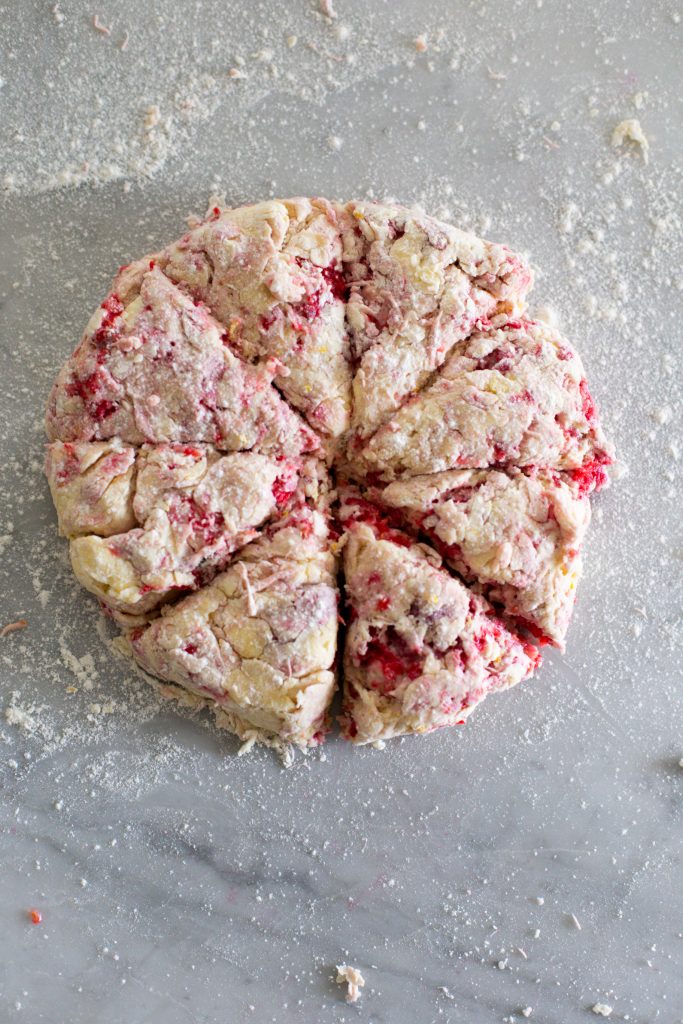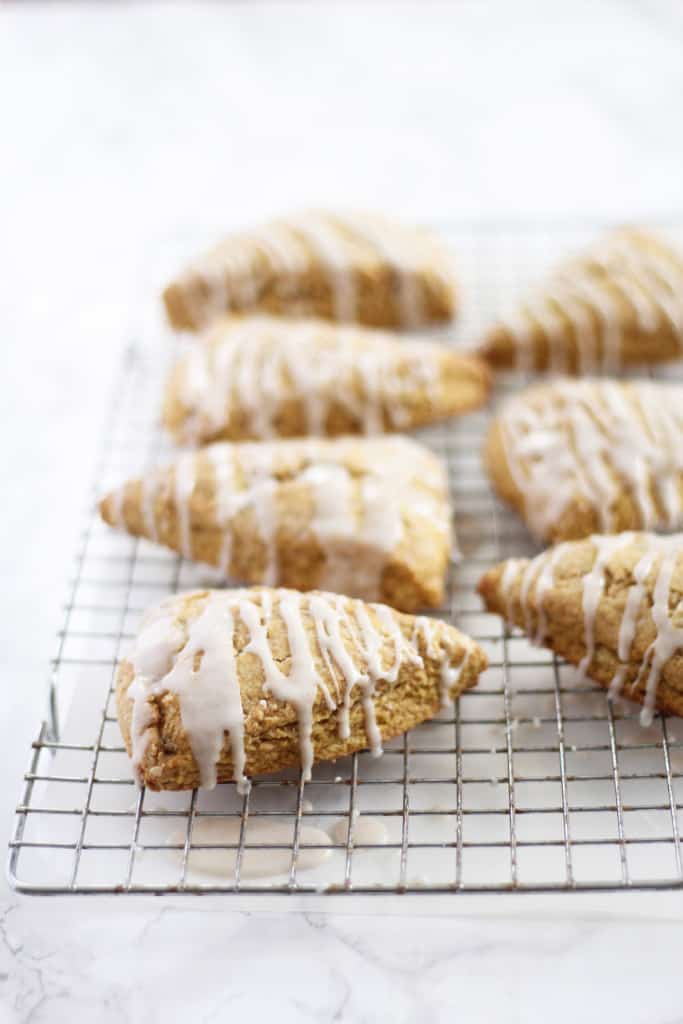Can you freeze scones?

In my opinion, nothing beats fresh scones right out of the oven. The edges are slightly golden brown, the inside is flakey and warm scones kinda melt in your mouth which is truly to die for. Scones come together quickly and are the perfect treat for afternoon tea or brunch. If you are in a time crunch though, or have leftover scones, you may be wondering if there is way to freeze them.
What ingredients are used for scone dough?
Scones are so adaptable and allow your creativity to shine. My basic scone recipe contains:
- Flour
- Baking Soda
- Salt
- Butter
- Buttermilk
- Egg
Can you freeze leftover scones?
The short answer is YES absolutely. There are different ways to freeze scones though and I am going to outline my favorite methods in this post.
What supplies do you need to bake and freeze scones:
- Airtight container
- Parchment-lined baking sheet
- Large mixing bowl
Reasons you may want to freeze scones:
- You’d like fresh yummy baked goodies for unexpected guests
- You made a big batch of scones and want to save some to bake later
- The number of scones the recipe makes is more than you need and don’t want to alter the recipe
- The shelf life of scones is short and you’d rather enjoy them freshly baked.
Two different methods to freeze scones are to freeze unbaked scones OR scones that are already baked. There are pros and cons to both options depending on the time you have when you’d like to actually eat them and if you need to transport them.
In both scenarios, you need a good airtight container for storing leftover scones. My first choice is a heavy-duty freezer bag a I find it takes up less space in my freezer and fits one batch of scones perfectly. A round tupperware type container would work as well. Another option for single servings of scones is to wrap each one in plastic wrap before placing in an airtight container. Wrapped scones will last a little longer.
To freeze scones that are already baked:
Allow them to cool to room temperature. (Freezing warm scones will affect the texture.) Place them in a single layer in an airtight container and freeze. Note that if the scones are touching in the bag or container they will stick together when frozen. This is fine with me when I am planning to thaw the whole batch, but if you just want one at a time, freeze them spaced out on a cookie sheet lined with a sheet of parchment paper and then place the frozen scones into your container or plastic bag. Frozen baked scones will last about a month. After that you could risk freezer burn.
When you want to reheat one or more scones, remove it from the bag and let it thaw on the kitchen counter room temperature. I like to then toast it for a few minutes in my toaster oven, or warm it in the regular oven for about 5 minutes at 350F.
Second method: freezing process for uncooked scones: (The better option in my opinion!)
In my opinion the best way to freeze scones is to make them, cut them into wedges, and then freeze the raw dough. Scones contain chunks of butter and when they bake, those chunks create the flakey, biscuit-like texture. Keeping that butter cold will not affect the end result and may even result in taller scones. For best results remove frozen dough and bake scones directly from the freezer, but you may want to add a couple of minutes of baking time. Your freshly baked scones will be perfect and won’t require much time day of.
How to bake frozen scones:
Place the frozen, unbaked scones on a cookie sheet and allow them to thaw slightly as the oven preheats. If the recipe calls for an egg wash or sugar sprinkle you can do that now, even if still frozen.
Bake at 350 F for 18-20 minutes, added 2 mins at a time if needed. You want the scones to have golden edges but still be soft when pressed.
Does the type of scone affect how you should freeze/reheat them?
No, I don’t think so. Whether you have made sweet scones or something savory like cheese scones, both of these methods will work well!


